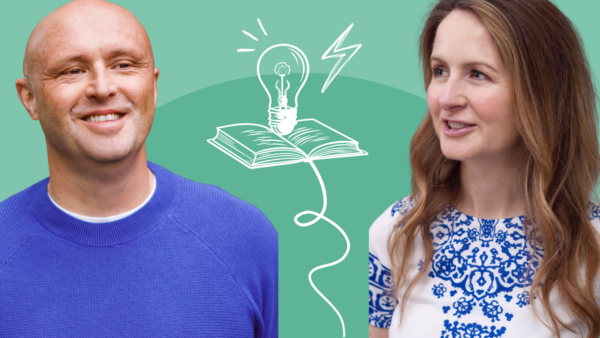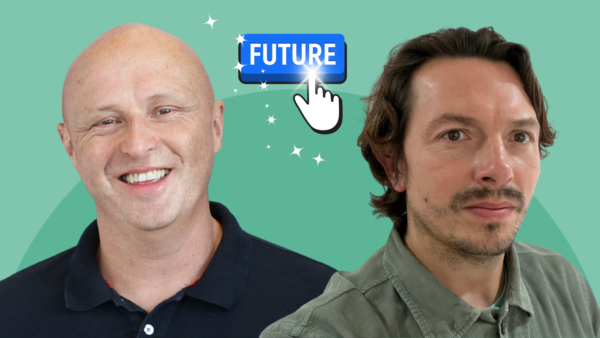Podcast transcript:
Covid changed the world of work, but also the world of education
I know you know this, but the world of work has changed significantly since the Covid pandemic. In many workplaces, people have become more adept at using screen-based technology, at teaming and managing in a virtual context, and boundarying work and life while spending more time home-based.
For those in education during the 2 years of the pandemic, it has been a learning experience on so many more levels. As well as needing to digest the standard school, college or university curriculum that had been in full swing pre-pandemic, students during Covid were asked to navigate a completely new form of education, with remote teaching, self-driven learning and minimal social interaction. And with teachers and tutors trying their best to maintain teaching quality standards and some semblance of connection to the school, college or University ‘experience’.
Loss of social connection needs a change in approach by employers
This was radical stuff. Life-altering for everyone in education. Sure, children and young adults are flexible and fast adapting in the main. But the level of social disconnect experienced for those learners whose college or University educations were so rudely Covid-interrupted was profound. And it has introduced the risk that those students transitioning to work without having had the full social experience of college or University, may feel less confident navigating work when they arrive.
So employers will need to work harder than ever to ensure that graduates and early careerists feel a part of the organisation, appreciated as unique humans and able to make a positive impact as soon as possible after joining.
56% of graduates now remain employed with the same firm after five years and 61% of apprentices. And while the 3 year retention trend was fairly steady between 2011 and 2019, it has dropped by 10% over the past 3 years. This points to a change in connection and commitment to work from early careerists. One way of reversing this trend is to take a more radical approach to early career onboarding – and that’s the topic of today’s podcast.
Can strengths help employers to engage and retain early careerists?
As the onboarding of graduates in September 2023 approaches, the wisest employers are looking at ways to acknowledge the distinct challenges faced by this year’s cohort. As these early careerists transition into the professional world, it is crucial to provide them with a personalised and motivating onboarding and early tenure process that recognises their distinct challenges and how these might have shaped them. This is where a strengths-based approach can make a difference.
Successful onboarding programmes play a pivotal role in retaining and engaging graduates and apprentices, ensuring they feel valued and motivated right from the start. Empowering those in early careers to identify their strengths and understand how these align with their career development areas gives them a common language to identify areas of growth and development throughout the company.
At Strengthscope, we work with Siemens, one of Europe’s largest employers and in recent months we’ve helped them introduce a strengths-based approach during the recruitment and onboarding process, actively encouraging managers to help new starters identify how they can make their own unique contribution from Day 1 in their roles. And the approach is making a big difference.
How are today’s graduates and apprentices different?
Today’s graduates are well-acquainted with technology, and their smartphones often possess a better understanding of them than their employers. As well as familiarity with technology, Gen Zers also present other differences to previous generations. According to the latest research, Gen Zers tend to:
- actively seek meaning and purpose in their work
- place value on employers who value diverse thinking
- value employers who make well-being a priority.
Embracing a strengths-based approach to onboarding allows employers to bridge the gap between these expectations and the realities of the workplace. Here are several ways:
Diversity of thinking the strengths way
For Gen Z, diversity isn’t solely about the active inclusion of people from protected characteristics groups (although they still see this as important). It’s also about acknowledging and appreciating different ways of thinking. Strengths provides a language to ensure that all voices get heard. When you know your strengths and can speak from a particular perspective (Strategic mindedness, Results focus, Optimism, Relationship building, for example), in a meeting or in a culture where these differences are understood and valued, you’re more likely to give your best as an early careerist.
Role crafting as a means of empowerment
Individuation is what those in early careers have experienced their whole lives – their phones and their tech constantly tailor content to them in order to gain and hold their attention. When an employer offers someone early in career the opportunity to craft their role according to their strengths, that is likely to have a similar impact on their engagement levels. In fact, for many Gen Zers, this is more a default expectation. So, helping a new graduate or apprentice to break down their role into tasks and then consider how they could make each task as energising as possible by using their strengths feels like a straightforward and low risk method for role crafting. This also has a substantial impact on well being, as people using their strengths report feeling a greater sense of control and autonomy, with a knock on effect on well being.
Strengthening early careers
One significant challenge in the hybrid work environment is the limited opportunity for meaningful interactions between graduates and their colleagues. Navigating the transition from a student mindset to the professional world can be overwhelming. However, by fostering an awareness of their strengths and development goals, graduates can map their journey and establish immediate connections to their career advancement.
Strengths-based onboarding is well worth the investment
In summary, we’ve found that by integrating a strengths-based approach throughout the graduate or apprenticeship journey, retention rates can be improved, and the overall experience for those early in career can be enhanced. The team responsible for Asda’s strengths-based graduate programme, for example, said that one graduate ”is now accountable for a £300M category of products, following back-to-back promotions. We also have another who is the General Store Manager of a £Multimillion store, becoming the youngest Asda GSM ever.”
I hope you’ve found today’s podcast useful. Till next time, stay strong.













